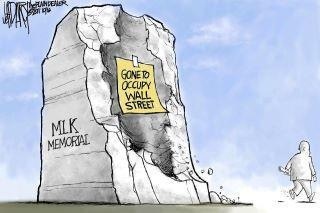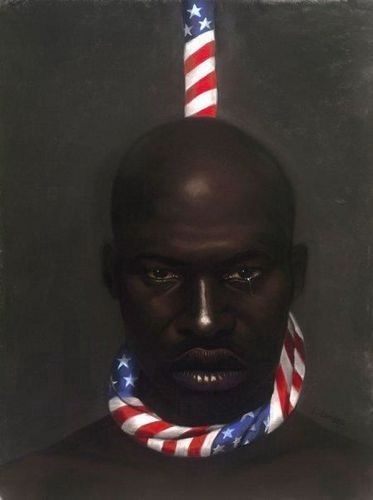Philosophy of Love
Does love transcend meaning? Is it a feeling beyond our rational quest for knowledge? Can we know what the meaning of love is via an explanation of words or rather can we only know love through its experience, that which delivers ultimate happiness? Many philosophers, including Buddhists, argue that the stage of enlightenment seeps beyond a description in the world of suffering and attachment, therefore, well past the comprehension of most. But, is love a state of enlightenment? “During our lifetime, we inevitably have to endure physical suffering such as pain, sickness, injury, tiredness, old age, and eventually death; and we have to endure psychological suffering like sadness, fear, frustration, disappointment, and depression.” (The Four Noble Truths) Therefore, if to live is to suffer, then how might one develop the skills necessary to either accept or combat such suffering without an explanation, perhaps ideally given by those who have seen a glimpse of the “Deathless;” the permanent state of being? In addition, what does it mean to love? I argue that before examining this question, one must ask a deeper yet similar one; how can we love? Is it the same for all or does it differ for each relationship? If that which is good, assuming that to love were to be good, would it change? And perhaps an even greater question, can that which is good, ever change? These fundamental questions help to create the framework of my argument. This essay seeks to provide a modest explanation of the dynamic topic by outlining profound ideas of what it means to love.
Many strongly argue that love is irrational; that because it involves various feelings and emotions such as passion, it encourages us to surrender our rational thought and give way to the mystery of love. Some argue that a harder problem is surrendering to love. How can one apply logic to feelings that change so often? Moreover, if love were logical, why would many endure the hardships that it often entails? Therefore, in this case, the fool is closer to love than the wise.
Before dissecting this argument and continuing, let’s examine The Truth. Many agree that The Truth is that which is unchanging, regardless of the way we perceive it to be. In fact, if we are to speak about The Truth at all, it must be at the highest level of perfection; it must describe that which truly is. Therefore, The Truth and The Good are quite interchangeable, for to speak and live in truth is indeed good. In order to identify the truth, one must be willingly to suspend viewpoints that are often molded by a world of attachment and suffering. Therefore, as mentioned in the argument earlier, surrendering is a part of love. However, many confuse the surrender of dogmatic viewpoints with the surrender of rational thought. This is dangerous, for many people have surrendered their logic in the name of love or in a different word, God.
To love another means to make the commitments necessary to nurture that person’s ideal goals as if they were your own. To fully appreciate this viewpoint, one must first understand what ideal goals are. Furthermore, to completely comprehend that which is ideal, or good, one needs a high-level of knowledge; one must possess wisdom which is developed usually over a longer period of time and requires critical thinking, but perhaps more importantly, the continuous experience of moral reasoning. Therefore, true love requires not just logic, but moral clarity. Those who lack such clarity often love the wrong things, attaching themselves to that which is not good. In other words, without moral clarity we attach ourselves to the ever changing, which can nonetheless create a sense of mystery and give way to irrationality. So of course, if we are dependent on that which is forever changing, we are by definition, foolish. “The origin of suffering is attachment to transient things and the ignorance thereof.” (The Four Noble Truths) For example, being attached to a person’s non-reproducible qualities could easily cause one to suffer.
However, if we are attached to that which is good, the unchanging, we stand a much better chance in the world of love. Still, to become attached to The Good is yet another attachment and could perhaps present its own set of problems; ones that I shall not attempt to explore here, for I have yet to reach which some argue is a good problem to have.
With this in mind, many philosophers argue that when one truly loves another, one doesn’t actually love the person, rather what one loves is the goodness within that person. For example, if one is to truly love another, one cannot love unique qualities such as personalities, which are changing; which by our previous definition renders them not good. However, to love means to nurture only the good, which are more likely to be qualities like thoughtfulness and kindheartedness; those that are good regardless of the being they inhabit, unlike personalities that can quite often differ depending on the person. However, this theory deserves a more in depth examination before we deem it honest. Why would one cultivate another’s good qualities? In fact, don’t many of us love a person because of such unique qualities like personalities? Without such special qualities, how would we be interested in one person over the next? These questions again seem to add to the argument of what some call the “mystery of love;” that love is unique in itself. In addition, if to love is to cultivate the ideal goals of another, then, without further exploration, one may easily argue that we must love one’s entire being, including the bad qualities, for the bad qualities are quite possibly the makings that need attending to the most; that, in order to flourish, require much nurturing, not the good ones. Is it not wise to nurture the bad and leave the good to flourish, while persistently aiming to transform bad qualities? For example, shouldn’t one focus more on ridding themselves and others of bad qualities like recklessness, transforming such bad qualities into good, instead of nurturing good qualities like courage, that are already of The Good? However, I argue that when one loves another, one should not push away that which is bad, yet one must maximize that which is good. For example, instead of aiming to transform the selfishness, one would greatly benefit from maximizing the good qualities, like selflessness, however minute it may be. Additionally, by nurturing good qualities one is maximizing The Good within the beloved, which I argue builds the strength necessary to accept and possibly overcome suffering.
Furthermore, to love another means not only to nurture their good qualities, but it also must include a sense of non-attachment. Many people become invested in another person because it serves to cultivate a relationship that they themselves seek to benefit from. If one is to love, one must become dedicated to increasing the happiness of another even if it means that they aren’t directly benefiting from such cultivation. For example, if one is to love, one must nurture another in order to help the beloved flourish, even if such flourishing excludes the lover. However, such non-attachment requires great practice, practice that entails the use of reason over desire. Plato, a philosopher and student of Socrates, describes a well-ordered soul, as one whose reason is not subject to passion.
So one may ask, is the fool more likely to love than the wise or does love require more than the desire to care? In closing, love is not an elusive concept that encourages us to relinquish our rational thought; rather it requires a great understanding of The Good. One must appeal to reason, not desire. To love is to make the necessary commitments to nurture the ideal goals of another, which requires great moral clarity and non-attachment. In addition, instead of concentrating on suppressing the bad, to love means to maximize the good qualities by nurturing The Good within another. This is not a how to guide on love, nor have I hardly addressed every worry concerning it, yet it is an attempt to explore The Good.





